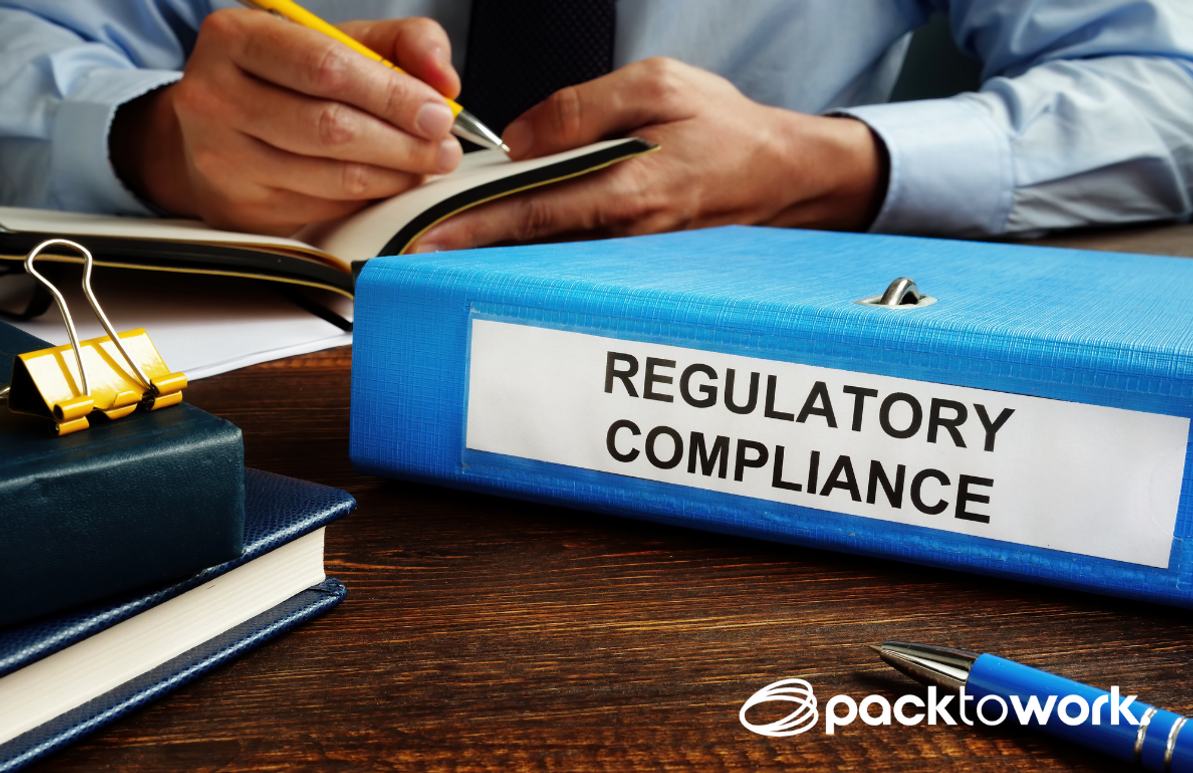Regulatory Compliance: How to Stay Ahead of Sustainability Regulations
In recent years, the push towards a sustainable future has led to a wave of new regulations aimed at promoting a circular economy and reducing environmental impact. Australia is at the forefront of this movement, implementing policies and guidelines that encourage businesses to adopt sustainable practices. At Pack To Work, we are committed to staying ahead of these regulations, ensuring our products not only comply with but exceed sustainability standards.
Understanding Australian Regulations on Circular Economy
Australia's commitment to a circular economy involves minimizing waste and making the most of resources. The Australian government has introduced various regulations to support this, focusing on reducing plastic waste, improving recycling systems, and encouraging the use of recycled materials.
Key regulations include the National Waste Policy Action Plan 2019, which sets targets for waste reduction and increased recycling, and the Product Stewardship Act 2011, which holds businesses accountable for the entire lifecycle of their products. These regulations aim to create a sustainable future where products are designed to be reused, repaired, or recycled, minimizing the environmental footprint.
NSW EPA and Its Impact on Businesses and Consumers
The New South Wales Environment Protection Authority (NSW EPA) plays a crucial role in enforcing environmental regulations and promoting sustainability in NSW. The NSW EPA has implemented various measures to ensure businesses comply with environmental standards, including strict guidelines on waste management, recycling, and the use of hazardous materials.
For consumers, this means greater access to sustainable products and services, as businesses are encouraged to adopt eco-friendly practices. The NSW EPA also provides resources and support to help consumers make informed choices, such as guides on recycling and waste reduction.
Pack To Work: Leading the Way in Sustainability
At Pack To Work, we are proud to be at the forefront of sustainability, offering eco-friendly products made from recycled materials. Our commitment to sustainability goes beyond compliance with regulations; we strive to innovate and set new standards in the industry.
Our products are designed with the circular economy in mind, ensuring they can be reused, recycled, or repurposed at the end of their lifecycle. By choosing Pack To Work, consumers can be confident they are supporting a company dedicated to environmental stewardship and a sustainable future.
Staying Ahead of Regulations: Tips for Businesses
1. Stay Informed: Regularly review updates to sustainability regulations and guidelines. This ensures you are aware of new requirements and can adjust your practices accordingly.
2. Engage with Regulatory Bodies: Develop a good relationship with organizations like the NSW EPA. They can provide valuable guidance and support to help you comply with regulations.
3. Invest in Sustainable Practices: Implementing eco-friendly practices not only helps you stay compliant but also enhances your brand reputation. Consider adopting sustainable packaging, improving waste management, and using recycled materials.
4. Educate Your Team: Ensure all employees understand the importance of sustainability and are trained in practices that support regulatory compliance.
5. Monitor and Report: Regularly monitor your environmental impact and report your progress. This transparency can build trust with consumers and regulatory bodies alike.
Conclusion
Navigating the landscape of sustainability regulations can be challenging, but it is crucial for businesses committed to a sustainable future. By staying informed and proactive, companies like Pack To Work can not only comply with regulations but also lead the way in promoting a circular economy. Together, we can make a significant impact on the environment and build a more sustainable world for future generations.
Ready To Shop Sustainably?
Recent blog
-
Purposeful Packaging: How Pack To Work Combines Sustainable Development with Global Impact as Business Model
In a world where environmental responsibility is no longer optional, Pack To Work is redefining what …24th May 2025 -
Breaking Down the Differences: Nitrile vs. Latex vs. Vinyl vs. the Newest Innovation in Hand Protection
Understanding the differences among nitrile, latex, and vinyl gloves is crucial for selecting the ap …24th Apr 2025 -
Small Business, Big Change: Why Switching to PCR Pallet Wraps Matters
When it comes to running a product-based business, pallet wrap probably isn’t the first thing you th …24th Mar 2025


 Sustainable Packaging
Sustainable Packaging Gloves & PPE
Gloves & PPE Carton Liners & Pallet Bags
Carton Liners & Pallet Bags Plastic Bags
Plastic Bags Bin Liners & Garbage Bags
Bin Liners & Garbage Bags Cleaning Supplies
Cleaning Supplies Specialty Bags
Specialty Bags Industrial Packaging
Industrial Packaging

